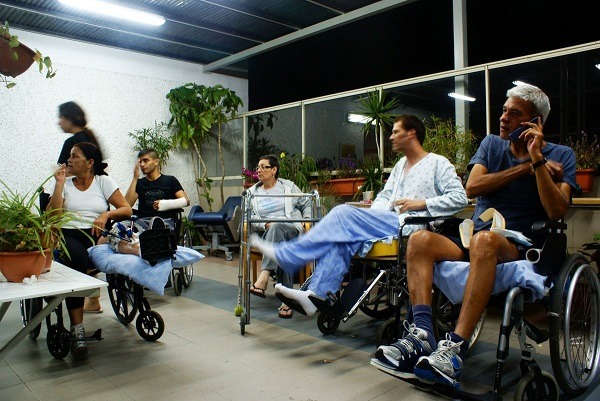Many people suffer from alcohol and drug addiction. There are no shortcuts to recover from such cases. Rehab is mandatory to ensure long-term good health. In addition, the rehabilitation process is different for each addict. For instance, an individual who’s been abusing drugs for years will require a more intensive treatment program. People who complete a drug rehab program can expect to experience at least four main different phases of rehabilitation. Meanwhile, if you are struggling with addiction and looking for an alcohol detox center, this reputable west palm beach detox center can definitely help you.
What Is Involved In Rehabilitation?
In general, rehabilitation involves extensive therapy to mend drug-seeking and dependency behaviors, influence better coping mechanisms, and instill relapse prevention skills. In addition, most rehabilitation centers have aftercare programs to prevent relapse and provide long-term support opportunities.
Understanding The Rehabilitation Process
The journey from alcohol and drug use disorder to a sober, healthy life is not easy or quick. Most of us require discipline, dedication, and a life-long commitment to hard work to achieve sobriety. In such cases, seeking professional help from a rehab center would be a good idea for you. Because rehab programs can be pretty confusing and can cause anxiety, here is a guide to help you understand what is involved throughout the process.
Process 1: Intake
When you’re at the rehab center, they will conduct an intake process first. This is because the primary goal of rehabilitation is to create a personalized treatment program based on an individual’s emotional, medical, and social functioning. The intake phase involves meeting with a rehab professional to determine treatment options and approaches that will best suit you.
During this process, a team of rehab professionals may undertake thorough assessments that may include a psychological evaluation, medical review, and psychosocial evaluation. The team may also look into your family history of addiction and your drug use history.
Additionally, the intake process involves dual diagnosis and co-occurring disorders. This means that you’ll discuss any medical issues or co-occurring diagnoses with your provider if you have any. You’ll also discuss additional treatment programs to ensure you receive the right level of care and support. Typically, dual diagnosis applies to individuals who suffer from substance use disorder (SUD) coupled with a mental illness.
Process 2: Detox
Detox involves safely extracting the addictive substance from your body, and in most cases, may cause uncomfortable and possibly risky symptoms. During this stage, you will be put under the strict supervision of withdrawal to ensure your safety and comfort throughout the unpleasant withdrawal period.
Withdrawal symptoms are usually associated with specific types of drug dependence and physical substance dependence you have. After testing your dependence level, it can be marked as dangerous and unpleasant.
Patients deemed to be at higher risks of developing these withdrawal syndromes get additional monitoring, supervision, and pharmacologic interventions. In most cases, medication will be provided to ease the symptoms of withdrawal associated with your addiction, including prescription opioid drugs and heroin.
Process 3: Rehab
After a successful detox, the next step towards recovery is rehabilitation. During this phase, you’ll get intensive therapy to deal with the underlying issues that may cause your substance use disorder. When choosing a treatment setting, it is essential to understand the available options:
- Rehab Therapy
- Partial Hospitalization and Inpatient, Outpatient
- Individual therapy
- Family therapy
- Facility amenities and services
Your doctor will examine your health’s condition, and then he will suggest which one of the treatment processes you’d need to follow for your rehabilitation.
Process 4: Recovery And Aftercare
This involves post-rehab therapy sessions, both group or individual therapy, to help patients stay true to their sobriety on their journey towards recovery. Recovery is a lifelong process that requires a solid aftercare plan. Even after completing an initial rehabilitation program, recovery is not met. Therefore, many rehab facilities offer follow-up programs to help patients get back to their daily lives. These programs may include additional counseling meetings and alumni classes.
A Few Things To Remember
Once you are ready to enroll in drug and alcohol rehab, take care of yourself beforehand. This means giving your body the sleep it needs and getting enough food into your system that will fuel a long detox period ahead when going through withdrawal. You have to remember, recovery from substance use disorder requires time, effort, support, willpower, and changes in many aspects of a person’s life. However, any individual seeking substance addiction recovery can benefit from these four stages of treatment by learning what is entailed in healing and learning new skills that will help them change their behavior.
